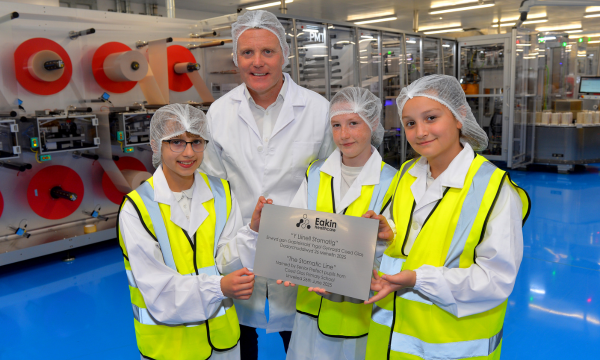 Written by:
Written by:
James Davies,
Executive Chairman,
Industry Wales
We simply cannot minimise the difficulties that the last 18 months have presented us with. We have to consider the impact that Brexit and the pandemic has had on our industry. Once we reflect on this, it is then possible to look ahead to the disruptions or revolutions we are facing (such as carbon and climate change) and the need for continuous improvement for competitiveness.
Manufacturing continues to be the most significant sector in Wales, overachieving the UK average. When we are in crisis in our industry, we know it is about retaining cash and ensuring the cash we spend comes back to us quickly and is reinvested in the right things. Supply chain development retains cash. As an industry we need to focus on learning how to do things ourselves, so we become more self-sufficient and less reliant on purchasing externally.
A continuous improvement culture is vital in Wales as we seek to learn, improve and become more sustainable. That is even more of a key driver since Covid-19, as we have accepted that our supply chains need rethinking. We must become more robust and less vulnerable to macro forces that are beyond our control. How do we value carbon? How do we include new clauses in procurement procedures to make the right decisions? We should target our activities in business towards Maslow’s basic needs and anchoring capability, capacity, competitiveness, and customer become essential.
What we have discovered in public and private sectors is that when you expose demand and show a route to order of that demand, then people, businesses, individuals and decision makers respond incredibly quickly. This was demonstrated in what we achieved with PPE and how we adapted and maximised our manufacturing capabilities. If you expose demand and need with visible routes to order to a wider supply chain, they will apply their expertise quickly to achieve quality, delivery and cost. If you add enablers into the mix, the speed of knowledge sharing, and networking proves very effective. Collaboration and cooperation are key. There are some significant and hard lessons to learn from Covid-19, the short-term capability we developed may not be entirely resilient. How can we maintain this capability in the near future? Mainly through collaboration, competitiveness and relationship building.
The opportunity for manufacturing in Wales is greater now than ever before. As long as we maintain capability and capacity, we will be resilient. Opportunities will increase because of global trade crises and the clear need to have a net zero world. Manufacturing in Wales and the UK will increase but we still need to do the right thing and that is focusing on supply chain development and increasing skills.
I am delighted to work with organisations such as University of Wales Trinity Saint David and their MADE Cymru project to ensure that we start doing this. To make things (rebuild capability and capacity in certain areas), make them well (competitively) and make them wisely (carbon efficient).
We need to live in a world that must adjust and continuously improve. We need to accept that we can always do things better. I am a massive believer in lean before digital. There is a need to do the right thing continuously. Data is the basis of continuous improvement and how digital is the next set of tools is to enable competitiveness. Lean, optimise, digitise and electrify are words that will dominate the future of manufacturing.
We need to ensure we have the ability to efficiently and remotely drive our equipment. The ability to connect and runs things electrically means that we will have the ability to be carbon efficient and therefore carbon neutral in the future. All of this comes under a culture of continuously improving. Everything can be improved, continuous improvement and the use of data and the tools we have been teaching in these areas, will be vital for us.
Optimise your process first, don’t automate everything. Only automate what is really critical in your business. Be agile, be lean and consider your process before you decide what you want to bring your digital tools to. The basis of this is data and working with partners who can offer you the possibilities in the emerging enhanced tool kit and not just sell you expensive equipment.
The future will be different to what I expect or can predict but I am also confident preparation for this future is possible by development of capability in supply chain and skills which will ensure we can face that future resiliently. A culture of continuous improvement based on data, and an active interest in innovation and digitalisation will mean we can adjust to these times.
This article is taken from a series of webinars in a three-day industry summit organised by MADE Cymru and University of Wales Trinity Saint David (UWTSD) in June 2021. MADE Cymru is an EU funded (via Welsh Government) initiative that seeks to support and boost manufacturers in Wales via upskilling programmes and R&D. Find out more www.madecymru.co.uk or email one of the team at MADE@uwtsd.ac.uk
You can watch all the MADE Cymru Industry Summit sessions via the link below:
https://uwtsd.hosted.panopto.com/Panopto/Pages/Viewer.aspx?id=76105868-e553-4680-8919-ad4100bc11fd







